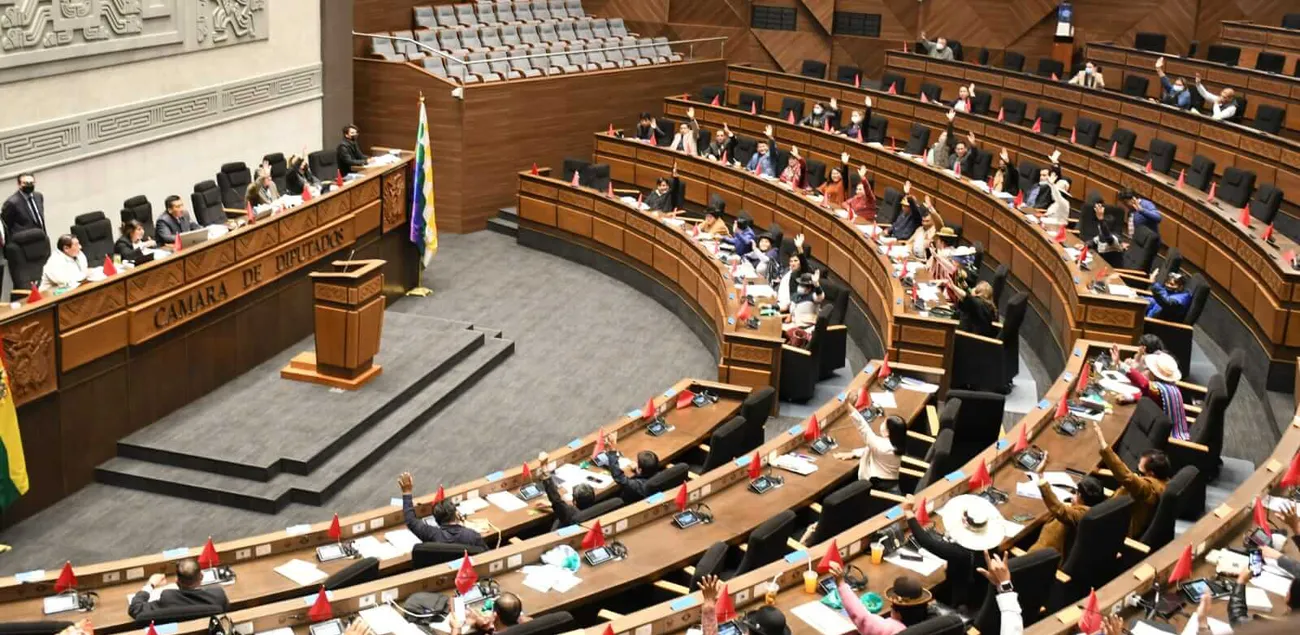
Bolivia’s Chamber of Deputies saw fiery altercations on July 9th when legislators discussed the contentious $975 million lithium extraction deal with Russia’s Uranium One Group. The session, which started at 17:00 hours, laid bare the deep rifts between government allies and opposition lawmakers calling for more regional involvement in the decision-making process.
The agreement to be signed between Russian-owned Uranium One Group subsidiary of Rosatom nuclear corporation and state-owned Yacimientos de Litio Bolivianos (YLB) would create Bolivia’s first direct lithium extraction plant at the Uyuni salt flat in Potosí department. The plant is expected to extract 14,000 tonnes of battery-grade lithium carbonate a year with Russian technology.
Parliamentary Tensions Intensify
Opposition members of the Comunidad Ciudadana party called for the session to be adjourned until the Constitutional Court of Bolivia settles an outstanding legal appeal against the contract. Comunidad Ciudadana legislator Lissa Claros from Potosí got into a shouting match with ruling party deputy Tania Paniagua, illustrating the acrimonious environment of the debate.
The clash escalated when Potosí legislators and other members of the opposition demanded that the debate be held in the city of Potosí, since the Uyuni salt flat is geographically located in that department. Claros protested that the Plural Economy Commission had already voted unanimously to consider the contract in Potosí, but said that this decision was being disregarded by her fellow legislators.
During the heated exchange, one legislator questioned the urgency of the project approval, asking colleagues “How much did they receive to approve the bill?” while displaying 100 boliviano notes, suggesting potential corruption in the approval process.
Legal Issues and Court Interventions
The parliamentary debate occurs against the backdrop of ongoing legal challenges to Bolivia’s lithium development strategy. In May 2025, a local court in Colcha K, Potosí, ordered the suspension of both the Russian and Chinese lithium contracts following complaints filed by indigenous communities representing over 50 groups in the Uyuni area.
The indigenous communities complained that the projects infringed on their environmental rights and were initiated without prior consultation or environmental impact studies. The court decision suspended YLB and the Hydrocarbons Ministry from taking administrative or operational measures regarding the contracts while the judicial process advances.
But the Bolivian government says it has not been officially informed of the court decision and is pressing on with the legislative approval process. Vice Minister of Alternative Energies Álvaro Arnez said contracts are on hold pending Assembly approval, rejecting accusations of unauthorized initial operations.
Chinese Deal Still Stalled
The Russian contract controversy comes after the recent shelving of another $1.03 billion deal with China’s Hong Kong CBC Invest Limited, a subsidiary of battery maker CATL. The Chinese agreement, which would have built a 21,000-tonne per year lithium carbonate plant, was rejected by parliament last week over the same transparency and regional involvement concerns.
Both foreign investment proposals have been criticized by analysts who say the terms disproportionally benefit international partners while leaving Bolivia exposed to financial risks. In a study by Fundación Milenio, the Uranium One agreement obligates YLB to reimburse all construction and exploration expenses even though there is no commitment from the Russian company to operate the facility without a further agreement.
Bolivia’s Lithium Dreams Encounter Challenges
Bolivia possesses an estimated 23 million tonnes of lithium reserves, the world’s largest, concentrated primarily in the Uyuni, Coipasa, and Pastos Grandes salt flats. President Luis Arce’s administration has prioritized foreign partnerships to accelerate lithium industrialization, aiming to produce 50,000 tonnes of lithium carbonate equivalent annually.
The direct lithium extraction technology offered by the Russian and Chinese partners ensures over 80% recovery, whereas conventional evaporation techniques have an efficiency of just 12-30%. This technological edge would make Bolivia a significant source for the world’s electric vehicle battery market.
But Bolivia’s push to develop its lithium has been stalled by political instability, bureaucratic red tape, and local resistance. The country has produced just 1,400 tonnes of lithium since 2018, despite decades of exploration and pilot projects.
Regional Participation Demands
The present dispute mirrors wider tensions between the central government of Bolivia and regional governments regarding the governance of natural resources. Potosí departmental authorities have long called for more local involvement in lithium projects, contending that their region was entitled to direct benefits from resource exploitation.
Opposition lawmakers have cautioned that the imposition of contract approval without sufficient regional consultation may provoke mass protests. Past mining projects in Bolivia have encountered fierce local resistance when residents believed they were not included in decision-making.
The Arce government is under pressure to manage foreign investment inflows with domestic political stability with general elections on the horizon in 2025. The lithium industry has emerged as a major campaign topic, with opposition groups accusing the government of mismanaging foreign partnerships.
Economic Stakes and Market Context
The joint Russian and Chinese offers are worth more than $2 billion in possible foreign investment, vital for the economic revival of Bolivia after years of budgetary limitations. The nation’s mineral exports dropped by 15% to $5.7 billion in 2023 because of dipping commodity prices, making the development of lithium urgent for the diversification of the economy.
World demand for lithium keeps expanding strongly because of electric vehicle uptake and renewable energy storage needs. Bolivia’s entrance into big league lithium production could strongly influence regional supply chains and deliver considerable export incomes.
Yet, political uncertainty over contract approvals has slowed project development and possibly discouraged further foreign investment. Foreign partners have been frustrated with Bolivia’s drawn-out approval procedures and shifting regulatory demands.
The July 9th parliamentary session marks a defining moment for Bolivia’s lithium strategy, and the result will probably dictate if the nation seizes the opportunity to cash in on its bountiful mineral wealth or continue enduring delays in exploiting its “white gold” deposits.



